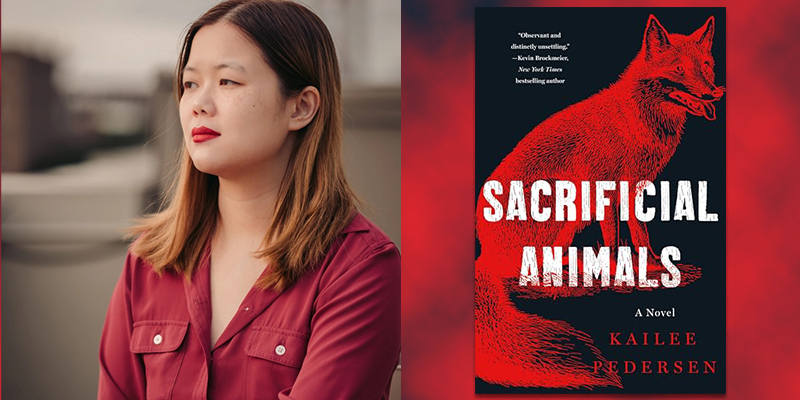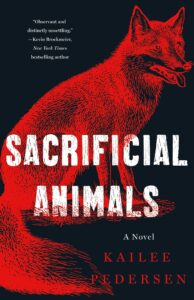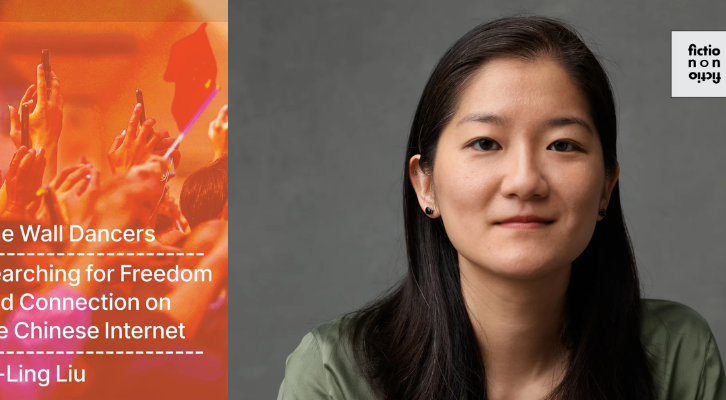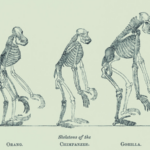There is no horror quite like the horror of unpleasant people. Yet as a reader and author of horror and speculative fiction, I’ve always been excited by characters that are distasteful, objectionable, or downright insufferable. There is something freeing about embracing their negative qualities, their self-destructive tendencies, and the complex disarray of their lives. A character’s willingness to transgress, to go beyond normal behavior, even to an extreme degree, can be both horrifying and thrilling to read.
My debut, Sacrificial Animals, is a Midwestern Gothic novel of supernatural horror, Chinese mythology, and family drama set on a thousand-acre farm in rural Nebraska called Stag’s Crossing. Nick Morrow returns to Stag’s Crossing to attempt a deathbed reconciliation with his abusive father Carlyle, where he is forced to reacquaint himself with his brother, Joshua — the erstwhile favorite son, disowned for marrying an Asian woman—and Joshua’s beautiful and enigmatic wife, Emilia. When Emilia and Nick embark on a disastrous, explosive affair, long-buried transgressions come to light and the cycle of violence and cruelty in the family begins anew. As childhood memories of his queer awakening and a possibly supernatural presence at the farm reassert themselves, Nick must come to grips with how he has been shaped—and scarred—by his past.
In writing my novel, I particularly focused on the character of Emilia. Her presence on the farm is an outlier—as a Chinese American and a woman, she stands apart from the Morrow men and sows chaos in their midst. In marrying Joshua, she was the direct cause of his disownment by his racist father, and her affair with Nick at first seems foolish and inexplicable. I wanted to create a psychologically complex and provocative portrait of a woman mired in gendered and racialized expectations whose “bad behavior” becomes all too understandable by the novel’s end.
Inspiration for Emilia’s character came from many sources, including some of my own experiences growing up adopted and Chinese in Nebraska, but I often return to works by East Asian authors, some contemporary, some writing almost a century ago, that have inspired me to write “difficult” Asian women characters. The following works from East Asian authors present several memorable women characters who transgress against societal norms in a variety of ways—their approaches are shocking, uncanny, and subversive, but never less than fascinating.
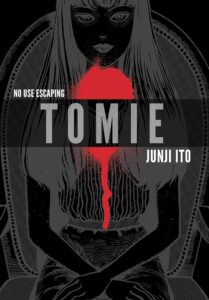
Tomie by Junji Ito
With the Adult Swim television adaptation of Ito’s manga Uzumaki premiering in September, there is no better time to revisit the early work of this horror manga master. Tomie Kawakami is a beguiling, succubus-like young woman whose very presence inspires obsession and violence in those around her. Yet her feminine beauty hides the monstrous inner workings of her body, capable of gruesomely reassembling itself even after suffering mortal wounds. In her introductory chapter, Tomie has returned after being dismembered on a school trip and is intent on tormenting her classmates and would-be murderers. What results is a mixture of psychological terror and body horror that Ito’s later work builds upon with spectacular success. Tomie is a fever dream of a femme fatale who embodies the ambiguous mixture of intoxication and dread that can lurk beneath desire.
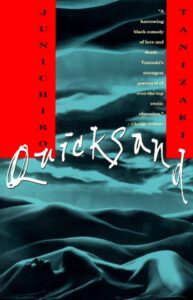
Quicksand by Junichiro Tanizaki
When Sonoko Kakiuchi encounters Mitsuko while taking an art class, her initial interest in the young woman is fanned into the inferno of sexual obsession in this Tanizaki novel of deceit, treachery, and lust. Tanizaki infuses the novel with a devilishly erotic charge that simmers beneath the deadly web of sexual complications that ensue from Sonoko and Mitsuko’s affair, which eventually ensnares Sonoko’s husband and Mitsuko’s fiance. The final act of betrayal in Quicksand has stayed with me many years after finishing the novel, and is a perfect distillation of the work’s themes of forbidden desire and self-destruction.
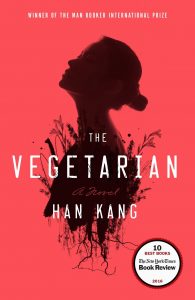
The Vegetarian by Han Kang
The Vegetarian is a deft psychological portrait of a woman’s struggle to express her bodily autonomy. Yeong-hye’s simple decision to become a vegetarian provokes outrage and even violence from her husband and family members. As Yeong-hye defies her family and deviates even more drastically from social norms, the very family unit begins to break down, and Yeong-hye’s sister In-hye and Yeong-hye’s brother-in-law become drawn into Yeong-hye’s orbit. Yeong-hye’s increasingly extreme behavior calls attention to her lack of agency over her own body, the lingering effects of trauma, and the price we pay for rejecting society’s vision of “normalcy.”
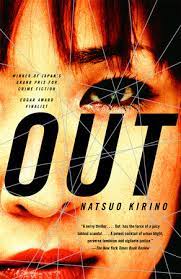
Out by Natsuo Kirino
Kirino’s taut and suspenseful novel centers the lives of four women who eke out a living working the night shift at a boxed-lunch factory. When one of the women, Yayoi Yamamoto, murders her abusive husband, the group bands together to help her cover up the crime. Exploring the often overlooked experiences of those on the margins of society, Out is a compellingly gritty portrait of women driven to the brink by desperation, whose terrible acts mirror their bleak circumstances.
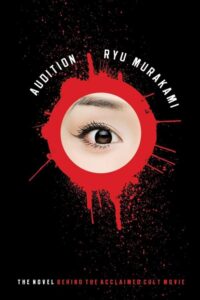
Audition by Ryu Murakami
Audition shares Tomie’s preoccupation with what terrors might be lurking beneath the facade of the “perfect woman.” Adapted by Takashi Miike into a memorably intense horror film that became a cult classic of the late 90s, the original novel is still well worth a read. When the widower Aoyama decides to hold a series of fake movie auditions as a pretense to find a new wife, he quickly falls for the beautiful Asami. Unbeknownst to him, Asami’s innocent demeanor hides a disturbed and volatile personality. As the novel hurtles toward its macabre denouement, Audition brings a uniquely sharp edge to its examination of relationship dynamics, exploitation, and twisted romance.
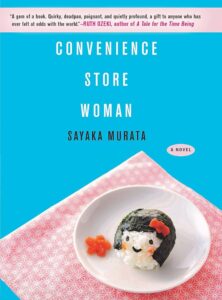
Convenience Store Woman by Sayaka Murata
The protagonist of Convenience Store Woman, Keiko Furukura, is a woman thoroughly alienated from society. In her thirties and still childless and unmarried, she is happy working at a convenience store, much to the confusion of her friends. Keiko’s observations, delivered in an delightfully oddball narrative voice, can be disarming and strange in one moment, piercing and insightful in another. When Keiko and her misogynistic coworker Shiraha briefly bend to society’s pressures and decide to fake a relationship, the outcome is darkly comedic, brutally pointed, and impossible to stop reading.
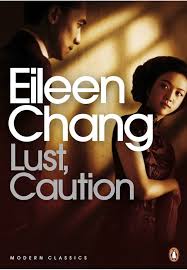
Lust, Caution by Eileen Chang
In this novella of wartime intrigue and deception, the drama student turned radical Wang Chia-chih finds herself in quite the predicament. Posing as the wife of a businessman, she infiltrates the household of Mr. Yee, the fictional head of Wang Ching-wei’s intelligence service and a member of the collaborationist government, as part of a plot to assassinate him. Despite becoming Mr. Yee’s mistress only to further her mission, Chia-chih unexpectedly develops troubling feelings for him, a conflict that plays out with deadly consequences. Chang mercilessly dissects Chia-chih’s inner world, including her self-delusion masquerading as a fantasy of love. Evocative scenes at the mahjong table, a jewelry store, and a final fateful ride in a pedicab set the stage for this suspenseful and atmospheric spy story, in which Chia-chih must choose whether to betray her ideals or her heart.
***

